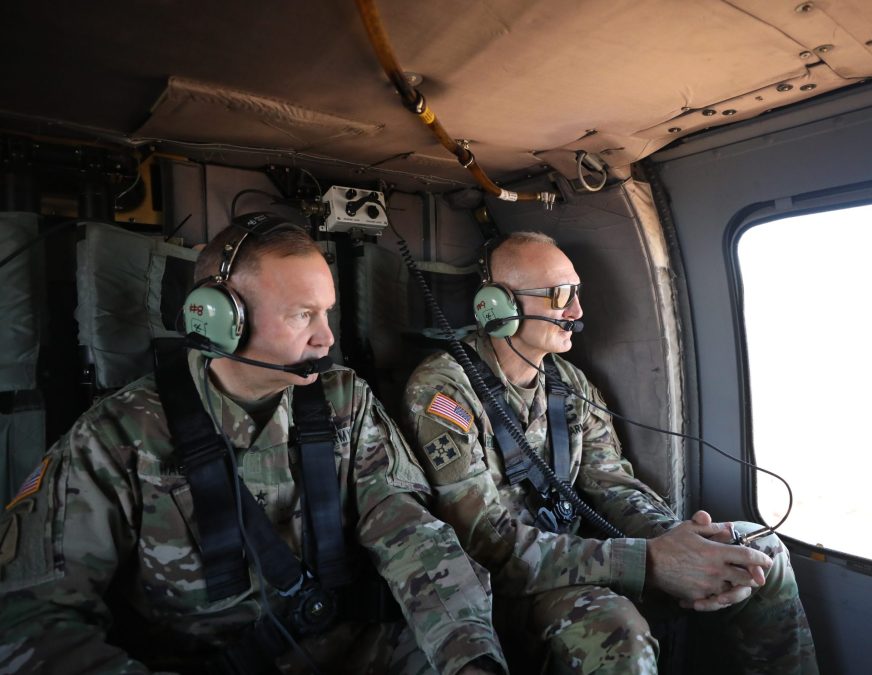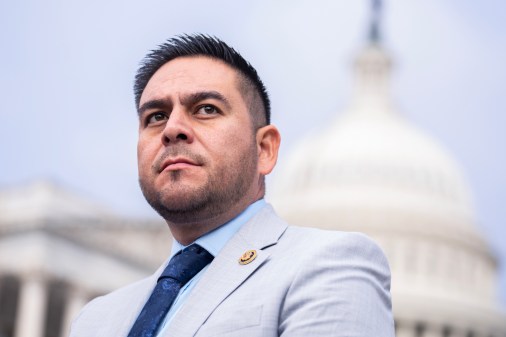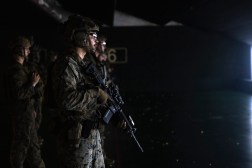Army Counterintelligence Command prepares for expanded off-post authorities

The recently codified expansion of authorities that will permit Army Counterintelligence Command agents to conduct searches, execute warrants, and make arrests off of military installations extends into cyberspace.
At a media roundtable on the sidelines of the annual AUSA conference Wednesday, Lt. Gen. Tony Hale, deputy chief of staff for intelligence, G2, and multiple senior officials from the command, shared new details about its current caseload and the anticipated implications of those off-post authorities.
“The adversary is collecting on us every day, no matter where we are. They’re trying to connect virtually with service members, with family members, with Department of War, Department of Army employees and with contractors to gain that advantage that they believe will help them win the next fight,” Hale said.
Its roots go back much longer, but Army Counterintelligence Command (ACIC) in its latest form was set up around 2021. At the time, its launch was billed as a response to what was viewed as an intensifying trend of foreign enemies targeting the U.S. for espionage, terrorism and other activities that could threaten national security.
Roughly 3,000 personnel work around the globe for the command, which officials confirmed has more than 200 active national security investigations at this time.
Counterintelligence agents from ACIC are also supporting U.S. Northern Command with Joint Task Force-Southern Border, according to Hale.
“With the almost 10,000 soldiers that we have on the [U.S.-Mexico] border today, there’s always a threat, whether it’s a transnational criminal organization, or whether it’s a foreign terrorist organization, or from the adversary,” he said.
A mandate tucked into the fiscal 2025 National Defense Authorization Act (NDAA) supplies ACIC special agents with new counterintelligence authorities that will allow them to pursue personnel in off-post investigations, or at sites outside of military installations — matching the powers of the FBI and other law enforcement agencies.
“We received that authority, and it has to go through a number of checks,” Hale explained. “First off, the secretary of the Army had to endorse the law that was written into law by Congress. Then it goes up to the undersecretary of war for intelligence and security, and it goes to the secretary of war for his endorsement. The attorney general actually gives us that authority. I expect that authority to come from the attorney general by the end of the calendar year, because we’ve been working it.”
He further confirmed that those new off-post authorities will also exist in the digital realm.
“So when that authority is vested in us, we will have the full power — just like our partner agents, our federal partners — to investigate, arrest and prosecute in any venue or any platform that the adversary shows up on,” Hale told reporters.
The G2 noted that most of the personnel that are under investigation by ACIC do not live on military bases where they serve. Previously, ACIC officials would have to work with the FBI or other law enforcement agents in operations outside of military installations. ACIC agents would also need to be deputized by non-Army entities in order to make arrests.
“A lot of the cases that we have right now may not gain the interest of a law enforcement agency because we haven’t found the critical information that we need to make this a larger case. But once we get those authorities we’re able to do a search warrant. We’re able to maybe get a device, so that we can run forensics on a device that will help us answer questions in the investigation, which would lead to the potential arrest,” Hale said.
However, even when the new authorities go into full effect, ACIC will remain keen to partner up with other agencies. Hale said that’s because doing so helps elevate the command’s credibility.
“In extreme situations, you have to arrest someone because of what may be getting ready to happen. We just had an incident like that a few weeks back. I’m not going to go into all the details, but an Army CI agent was the closest deputized by a joint task force to make an arrest. He had those authorities from the FBI from a joint task force, and he was the closest [person] to the individual who they believed was going to conduct an act of terrorism. So that Army CI agent went to that location and detained that individual and waited for law enforcement personnel to get to the site — but he was the closest person there, so he was able to execute because he was already deputized by another law enforcement agency,” Hale said. “We have dozens of CI agents who are deputized by other law enforcement elements and — oh, by the way, we’re embedded with those joint counter intelligence task forces across the continental United States.”






